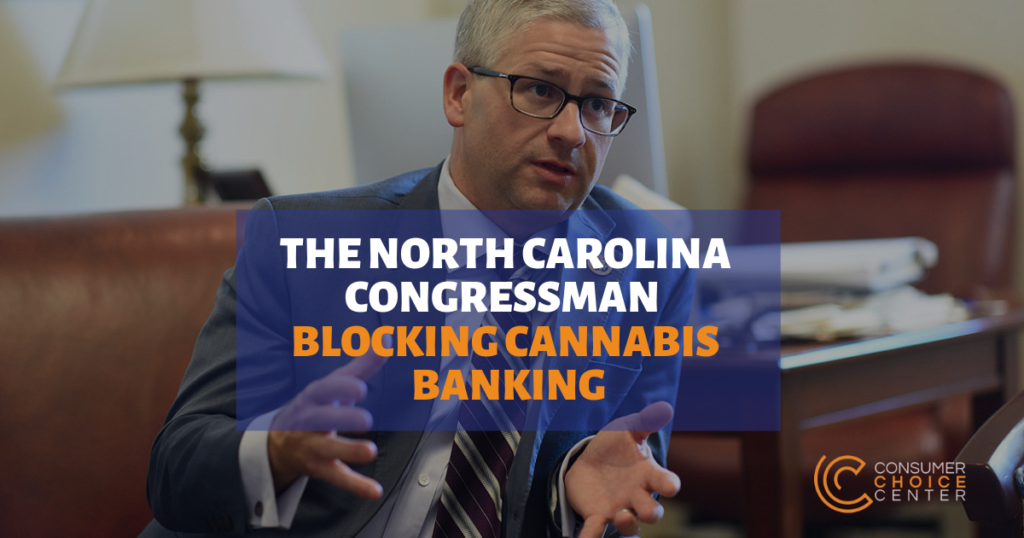For the 98 percent of Americans who live in states or jurisdictions with some level of cannabis legalization – whether recreational or medical – it is far past the time to have some legitimate banking options.
There are now thousands of cannabis-related businesses that buy and sell goods and services, estimated to be worth over $50 billion nationally.
However, up until this point, none of these businesses have had access to legitimate banking services, owing to cannabis’ classification as a Schedule 1 narcotic by the DEA.
The SAFE Banking Act, introduced this month by U.S. Rep. Ed Perlmutter (D-CO), aims to fix just that.
The bill would give financial cover to states who have legalized the recreational and medical use of cannabis, and finally, allow financial institutions the ability to provide their services to Americans involved in those industries.
The latest version of the bill, introduced for the past several years, is the result of much negotiation, rewriting, and debate, the latest being a House subcommittee hearing in February that included testimony to include the voices of the millions of consumers, regulators, and entrepreneurs who only wish to legitimize their cannabis trade from the black market.
The SAFE Banking Act has thus far accumulated 143 total co-sponsors, including 12 Republicans, totaling a third of the entire House of Representatives.
But now that the bill has advanced to the House Committee on Financial Services, it is facing its sternest opposition from a single congressman: U.S. Rep. Patrick McHenry, a Republican from the Piedmont region of North Carolina.
McHenry is the ranking member on the Financial Services Committee, which oversees the previously mentioned subcommittee.
Late last week, McHenry issued a letter addressed to the chairwoman of the committee, U.S. Rep. Maxime Waters (D-CA), seeking a delay consideration of the bill.
The reasons for caution, urge McHenry and his colleague U.S. Rep. Blaine Luetkemeyer (R-MO), relate to the effects such a bill would have on the current illegal status of cannabis by federal law.
“We must ensure that Congress has done its due diligence, including conducting thorough oversight and review, before moving such legislation,” the letter states.
They claim that dozens of other agencies, including the IRS and the DEA, would need to have their views heard before such a bill could advance.
Though McHenry plays the part of a cautious legislator in opposing the SAFE Banking Act, he is anything but. Rather, he is primarily an opponent of any effort to legitimize cannabis.
At every chance given, McHenry has voted against positive cannabis reform.
On the last four major votes in Congress related to medical cannabis, whether the Justice Department should go easy on banks who open accounts to legitimate cannabis businesses in states where it is legal, and cannabis access for veterans, McHenry has voted NO every time.
He has one of the lowest ratings from cannabis reform groups such as NORML, and has repeatedly opposed all efforts to destigmatize the cannabis industry in states where it is legal.
McHenry’s efforts may seem noble to those who uphold the rule of law and legal certainty, but he took the opposite view when financial institutions were cracking down on causes he aligned himself with.
McHenry campaigned fiercely to end Operation Choke Point, an Obama-era Department of Justice initiative that targeted banks dealing with high-risk customers, including gun merchants, pawn shops, and firms tied to money launderers.
Then, McHenry fought for financial institutions to safely grant banking services to gun merchants, pawn shops, and payday lenders. Why wouldn’t we want to extend the same courtesy to cannabis firms in states where it is legal?
If North Carolina lawmakers move forward with their efforts to legalize medical cannabis this term, McHenry may a reckoning. For the sake of the millions who want safe and legal access banking options for the cannabis industry, let’s hope so.
